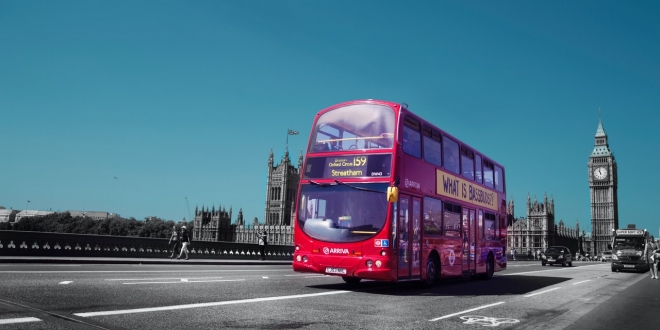Unite the Union’s London bus driver members have been advised by the trade union to stop driving their bus if it becomes overcrowded in an effort to prevent the spread of Covid-19.
In order to prevent transmission among passengers and in response to the high number of bus drivers who have died of Covid-19, Transport for London (TfL) last year set strict limits regarding how many passengers a bus could carry while ensuring adequate social distancing measures could be enforced.
A maximum of 30 people can ride on a double-decker bus, while the maximum capacity for a single-decker bus is either 11 or 14, depending on the type and size of the bus. As well as these limits, standing is not allowed on any bus.
Despite these maximum load rules, drivers were told last September when the schools returned that the limits did not apply when collecting schoolchildren.
With schools returning today, bus drivers are concerned that the numbers of passengers will increase dramatically – risking their health and that of all the passengers on board, particularly with new variants of Covid-19 reported to spread more easily among children.
In response, Unite has issued advice to it’s more than 20,000 bus driver members that, when the bus reaches capacity the driver should remain in their cab and contact their controller – with the bus remaining stationary until the overcrowding issue is resolved.
Unite lead officer for London buses John Murphy said, “Today Unite is taking decisive action to prevent the unnecessary transmission of Covid-19 on London’s buses. The rules on maximum capacity are there for a reason and are supported by scientific research.
“Flouting the overcrowding rules will inevitably lead to an increase in transmission of Covid-19 and risks the health and wellbeing of the driver, passengers and the general public. There is no logic to having different rules for school children. Travel on London buses must be safe for everyone at all times.
“Taking a stand and refusing to continue on a route until buses are not overcrowded will inevitably cause disruption and delays but it will improve safety and save lives. It is the responsibility of those who run Transport for London to introduce additional measures to ensure the safety of all passengers.”
London bus strikes
In other news, Unite has been leading London bus drivers in strike action over a dispute with French-owned bus operator RATP and its three London subsidiaries; London United, Quality Line and London Sovereign.
Further strike action is taking place this month following several strikes in February over a dispute over pay and terms and conditions which affects more than 2,000 bus drivers.
Following strike action last Wednesday (3 March) which involved drivers employed on the London Sovereign subsidiary, there are further one-day strikes slated for Wednesday, March 10 and Wednesday, March 17.
Unite regional officer Michelle Braveboy said, “Bus drivers at RATP are resolved that attacks on their pay and conditions will be abandoned and that they will secure a meaningful pay rise.
“It is simply disgraceful that RATP is using the cover of Covid-19 to try to force through these cuts.
“London’s bus drivers have kept the city moving through successive lockdowns but have also suffered a terrible penalty, through very high numbers of Covid deaths, as a result of their dedication and sacrifice.
“This strike action is being taken as a last resort,” Braveboy continued. “This dispute is a direct result of RATP failing to treat its workers reasonably and fairly.
“RATP is attempting to boost its profits by cutting workers’ pay, either directly or in real terms.
“Further strike action can still be avoided and Unite is prepared to enter into negotiations to resolve this dispute at any time.”
Read more:






Facebook Comments